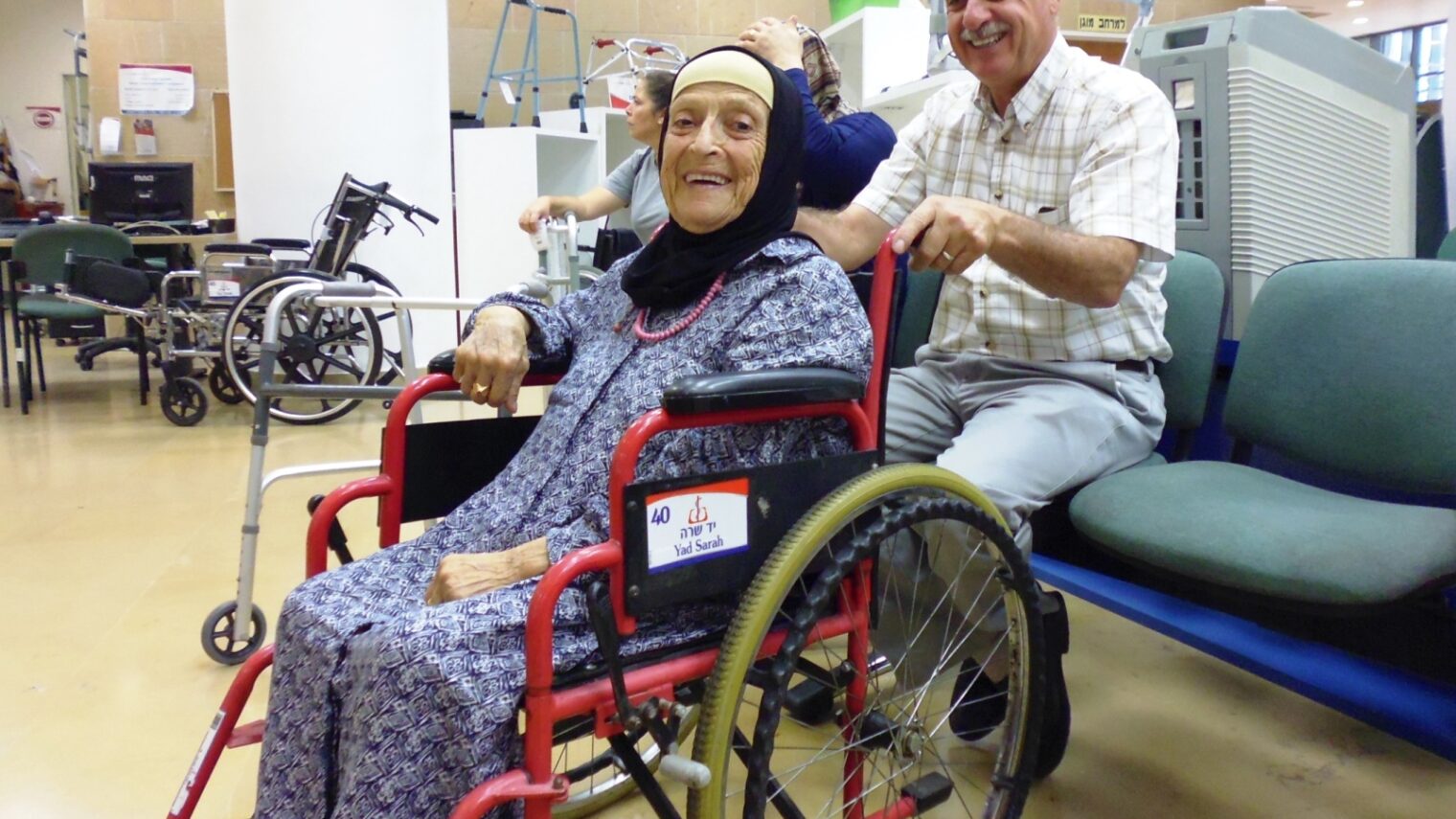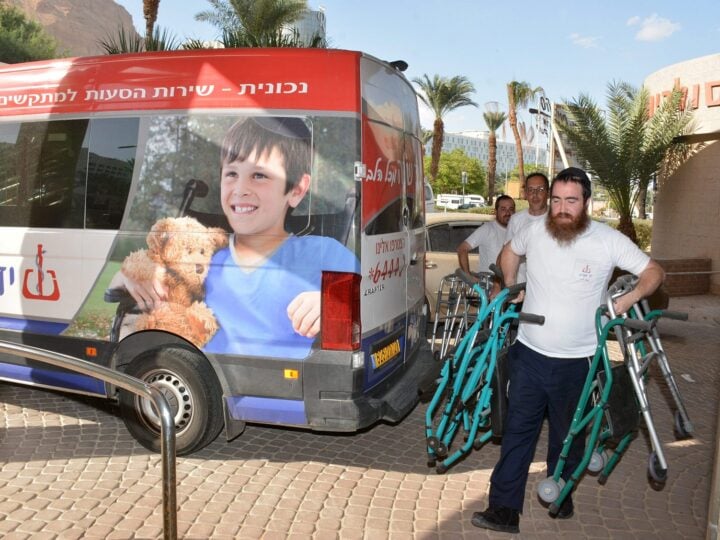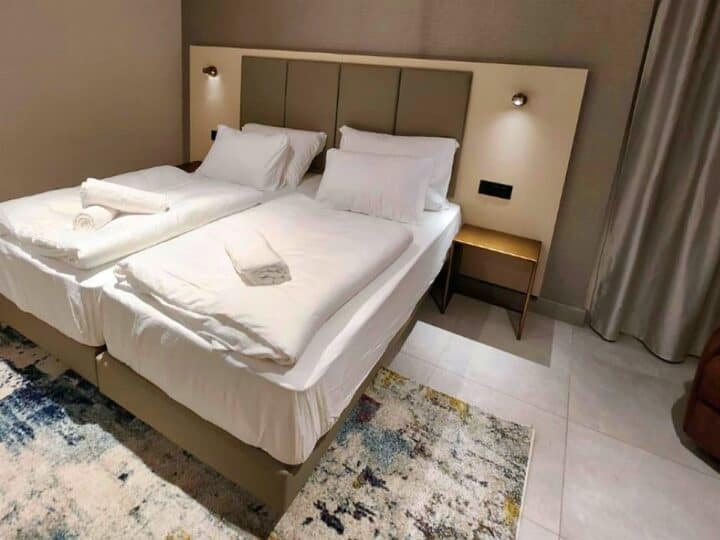Whether you come in for crutches or a crib, geriatric dental care or music therapy, legal advice or a personal alarm – or any other services provided by Yad Sarah, Israel’s largest voluntary organization – the goal of the staff is that you leave with more than a tangible item.
“Our founder, Uri Lupolianski, has said since the start that he doesn’t want people only to get what they came for but to leave with a good feeling from those they dealt with, and to feel comfortable coming back again and again,” says Michael Benson, director of Yad Sarah Beersheva, one of more than 100 branches nationwide.
The ultra-Orthodox Lupolianski, a former teacher and former mayor of Jerusalem, received the 1994 Israel Prize for founding Yad Sarah in 1976. He began lending humidifiers and respirators to needy neighbors in winter so as to avoid hospitalizations for respiratory distress.
It soon became apparent that the need for borrowed medical equipment was too big for his apartment. So Lupolianski’s father donated seed money for a larger initiative in memory of his mother, Sarah, a Holocaust victim.
ISRAEL21c took a tour of Yad Sarah’s eight-story Jerusalem national headquarters with spokesman David Rothner. A movie in the new visitors’ center, available in Hebrew or English, continues on mounted monitors throughout the facility.
The first thing we learned is that Yad Sarah runs on donations and the work of 7,000 volunteers and 160 employees nationwide.
Home vs. hospital
The world’s largest lender of medical gear, Yad Sarah loans out 150 types of equipment – from electric breast pumps to electric hospital beds – for a refundable deposit.
“We lend 4,000 electric beds each year so people can recover at home instead of in the hospital. Our main goal is to enable people to be in their home environment because it’s better for them and cheaper for the state,” Rothner tells ISRAEL21c.
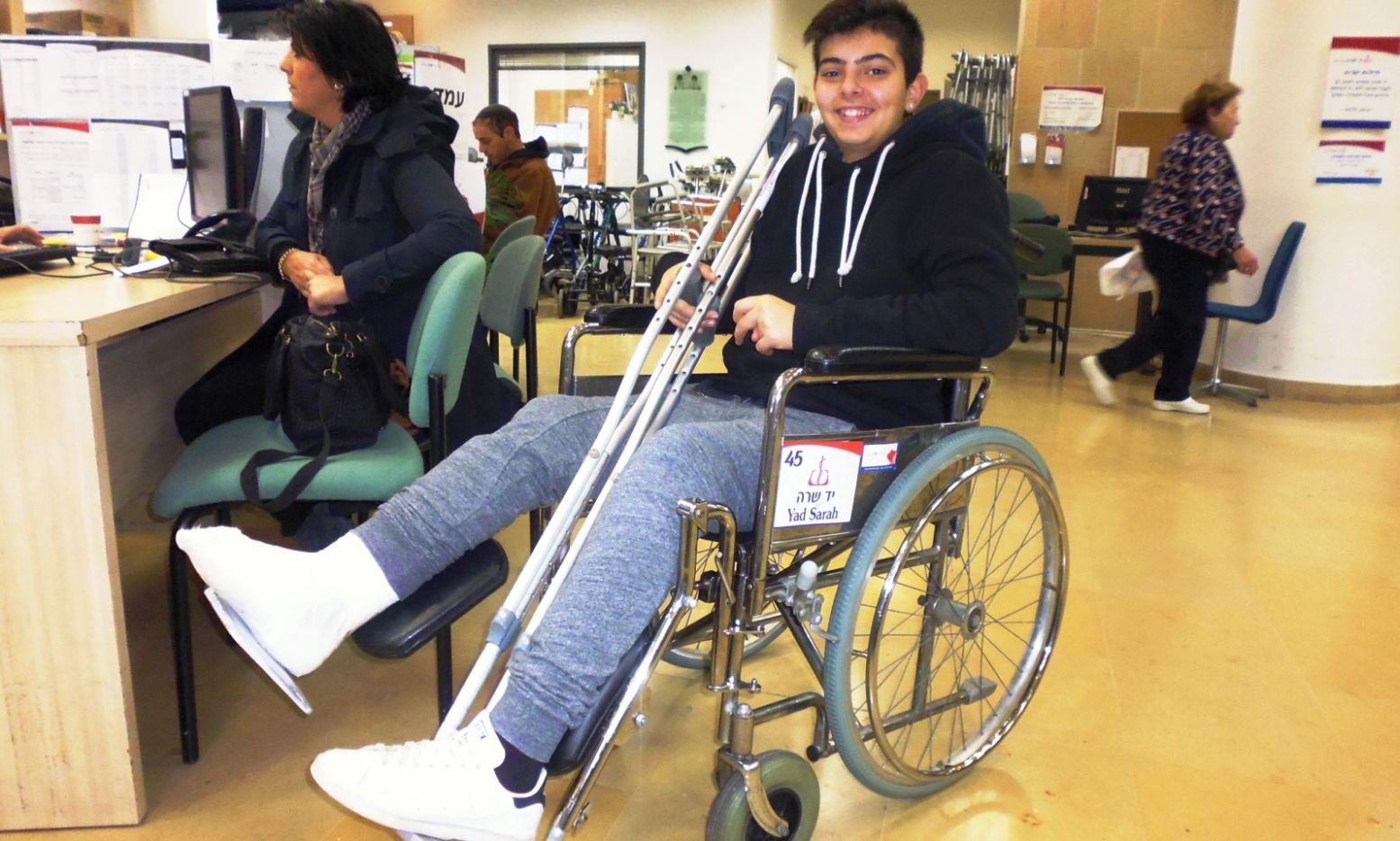
Items can be returned at any Yad Sarah across Israel, including branches in several Arab villages and in 11 hospitals.
“Our annual budget is $27 million and we save the government over $400 million every year. Yet we get only 1-2 percent of our annual budget from the government,” says Rothner, as a pregnant woman walks in seeking a TENS machine for easing labor pains.
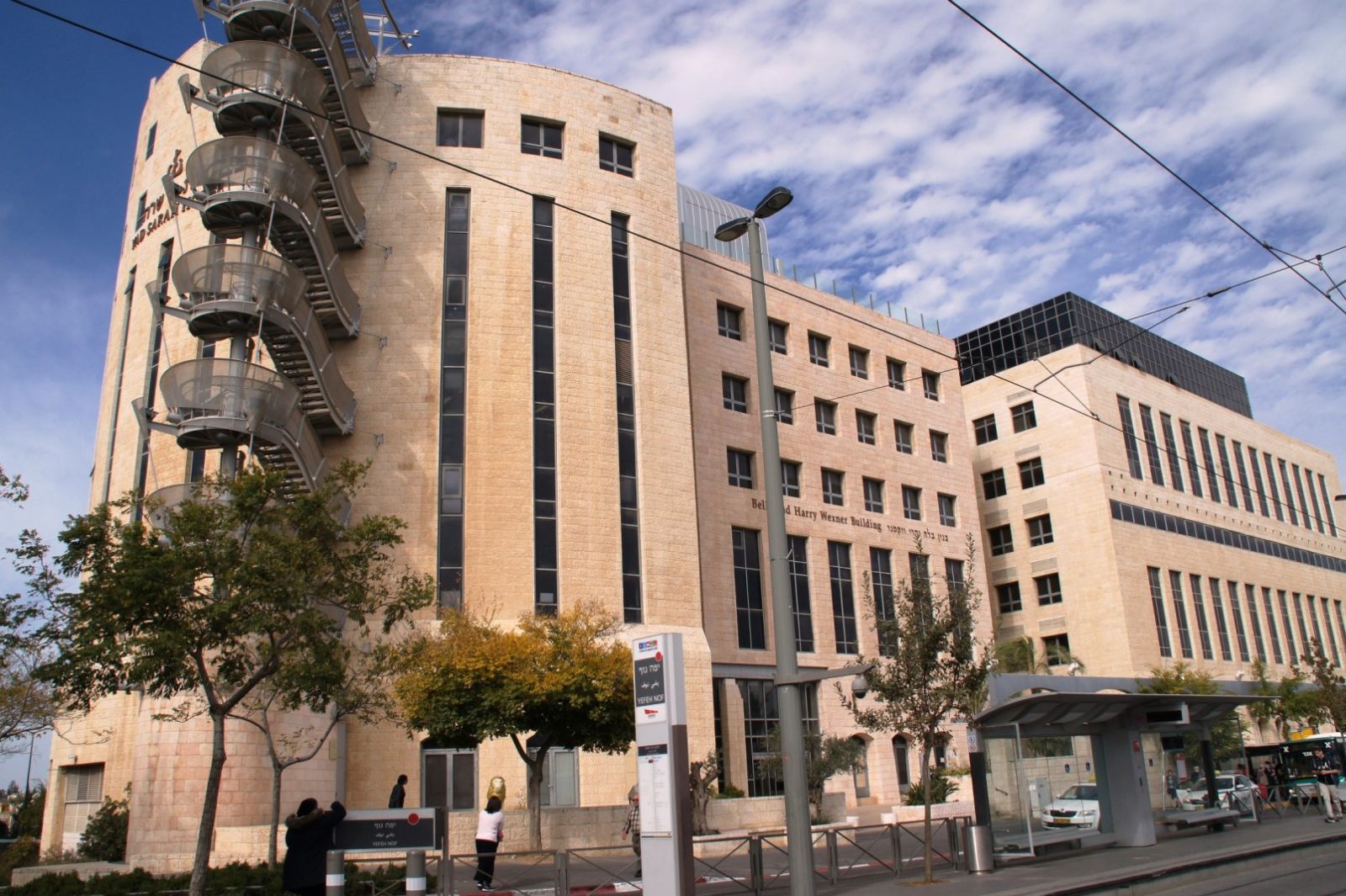
Yad Sarah clients come from every sector of Israeli society and are not subject to any screening or bureaucracy.
“It doesn’t matter if someone could afford to buy a piece of equipment they borrow from us. The idea is to get them what they need immediately,” says Rothner. “They may not know what exists on the market or have the time to run around to stores when a loved one is about to come home from the hospital.”
Yad Sarah has helped establish similar ventures in the former Soviet Union, South Africa and some Eastern European countries, but there’s nothing as comprehensive as the Israeli model, Rothner says.
Though medical equipment lending is the most high-profile Yad Sarah service, it only scratches the surface.
Transport, emergencies and reassurance
Volunteers at the Jerusalem headquarters coordinate a nationwide fleet of Yad Sarah vans that cover 8,000 kilometers per day, annually transporting 150,000 people in wheelchairs, on demand, for a highly subsidized fee. The vans also are available through Yad Sarah for Tourists.
Another group of volunteers mans a response center linked to wearable alarms used by 20,000 elderly or housebound clients and others concerned about personal security. This is the only department that’s open on the Sabbath and Jewish holidays.
“This service is first of all about saving lives,” says Rothner, “but most of the calls are from lonely people who just need to hear a reassuring voice. It doesn’t bother us if someone presses the button every morning. We even have a volunteer who calls clients to check that the buttons are working and to ask how they’re doing.”
Some volunteers visit with homebound people and Holocaust survivors. Others record their life stories and turn them into a book along with pictures and documents.
There’s a medical information center staffed by volunteer doctors and nurses and a legal clinic for the elderly run by volunteer lawyers, available in more than 20 Yad Sarah branches. There are support groups for caregivers and courses in skills such as memory improvement.
A geriatric dental clinic at the Jerusalem branch is staffed voluntarily by recent graduates of the Hebrew University-Hadassah School of Dental Medicine. Several Yad Sarah branches also have a mobile dental clinic for home visits.
The rehabilitation department offers physiotherapy, computer therapy, music and art therapy, therapeutic gardening and bibliotherapy weekday mornings, followed by a hot lunch.
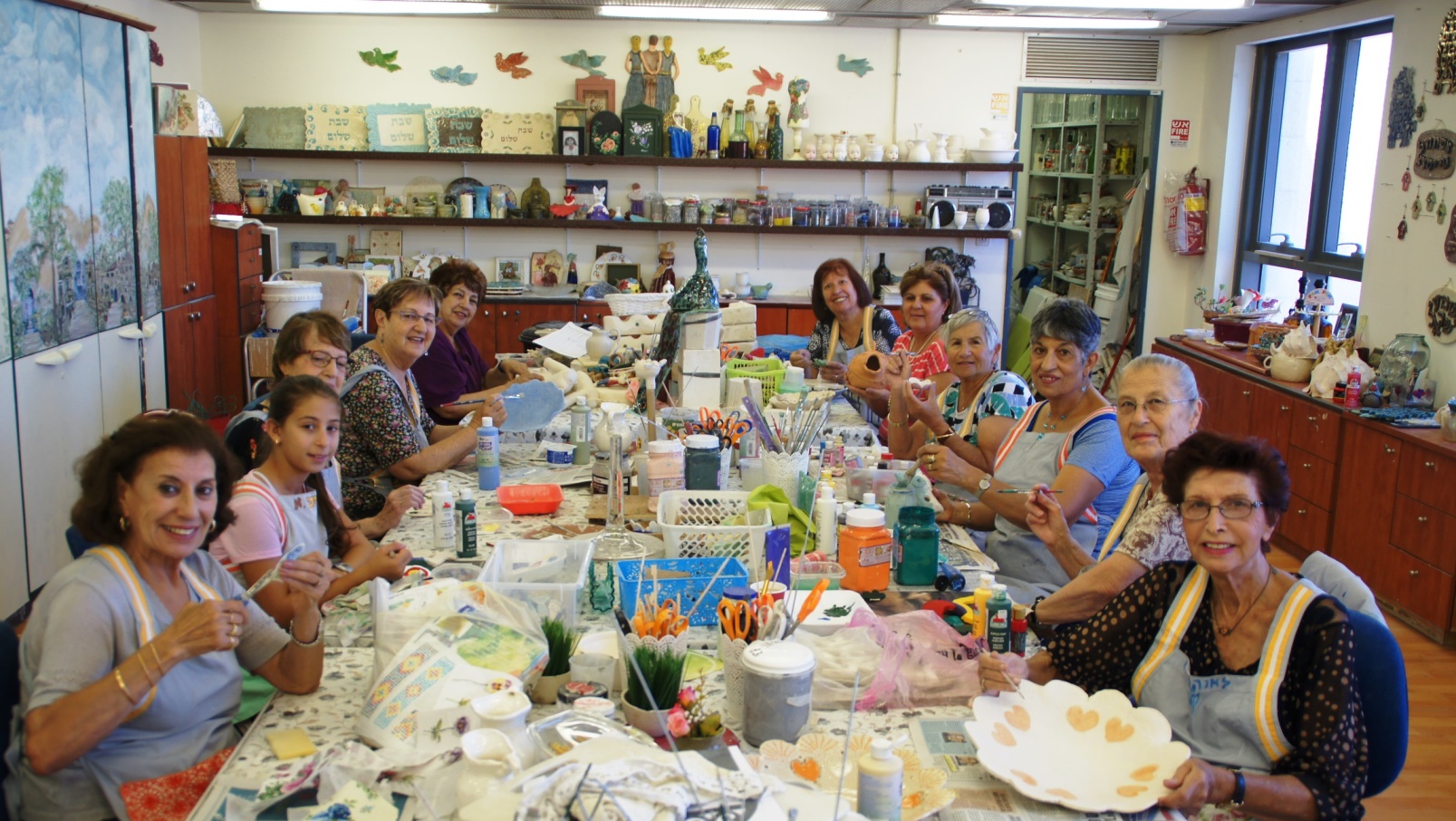
ISRAEL21c watched a group of pensioners create decorative items, like tea boxes and pillows, to be sold online and on premises.
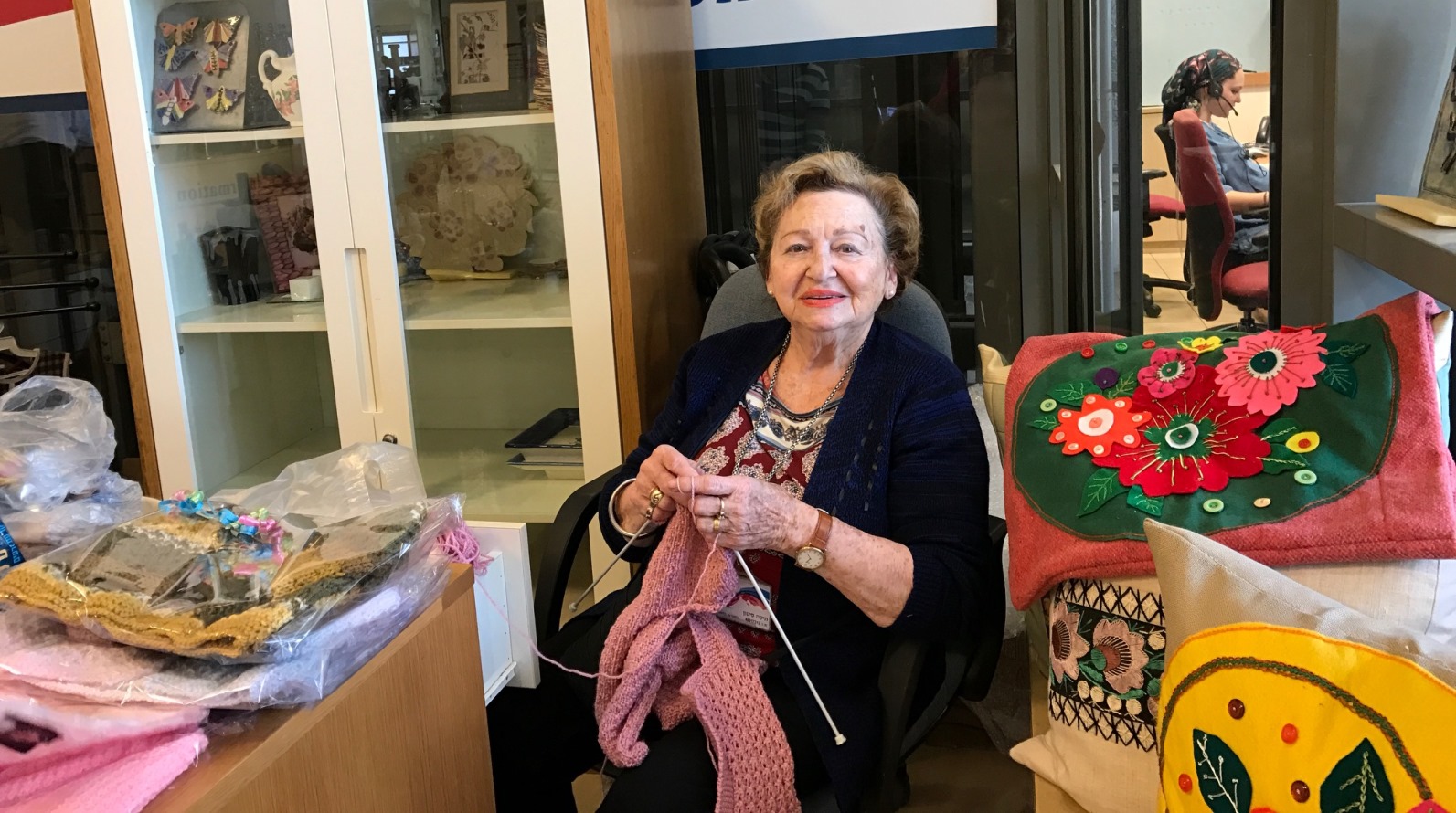
And a whole wing of the building hums with the sound of tools as retired mechanics and technicians, as well as teenage National Service volunteers, maintain and repair Yad Sarah’s medical equipment.
“If we had to outsource these repairs it would be very expensive,” says Rothner.
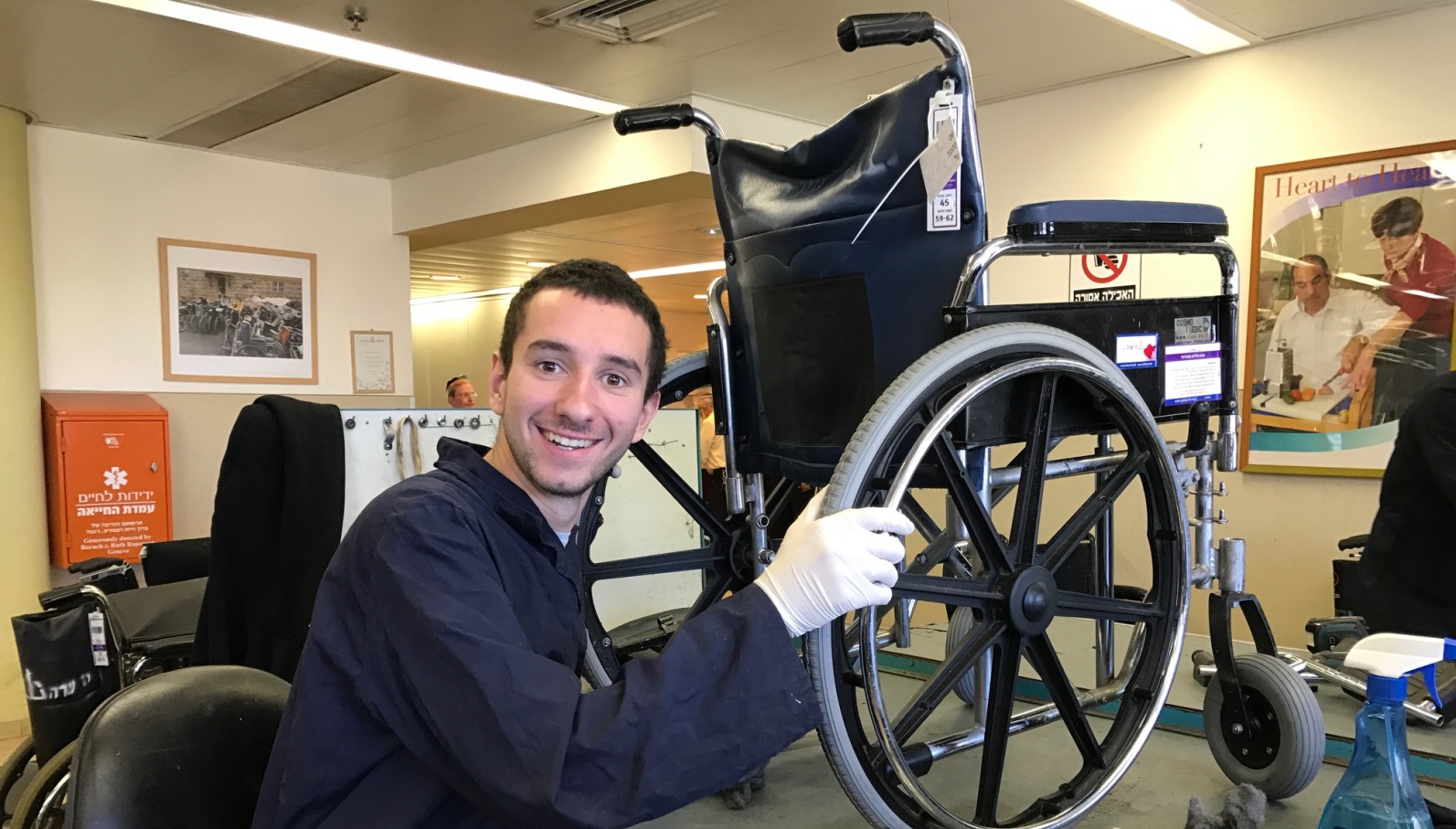
Shmuel Treistman, a retired plumber and builder, has volunteered three days a week in the Yad Sarah repair shop for 20 years. “We get equipment to fix from all our branches and we try to get them back out looking like new,” he says. “I love it here.”
Yissachar, a volunteer busy fashioning a new wooden piece for a crib, relates that earlier in the day he mended a wheelchair for a child from an Arab village near Jerusalem. It wasn’t a Yad Sarah wheelchair but Yissachar was happy to help.
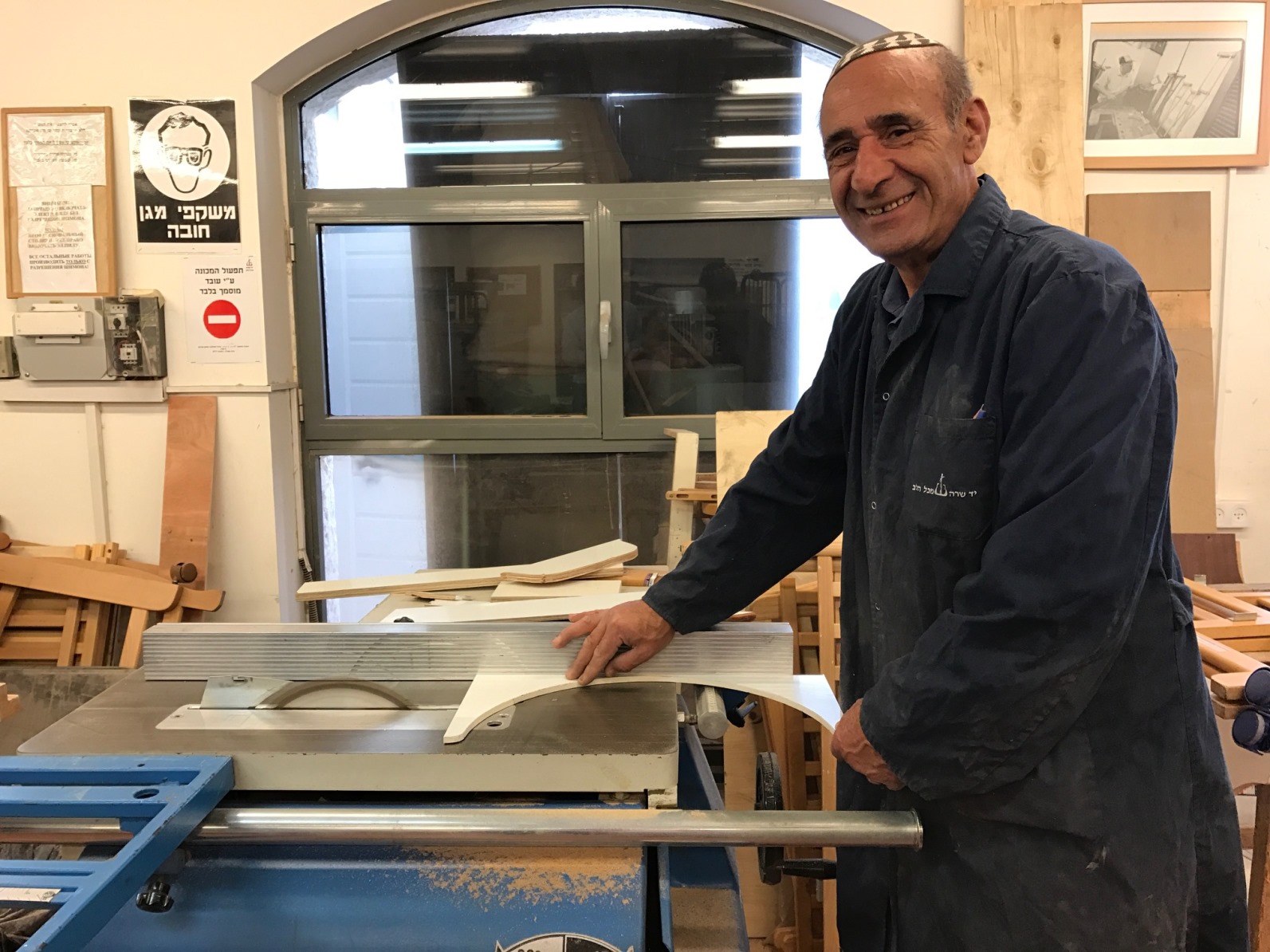
Try out adaptive equipment
In model apartments set up in Yad Sarah’s Exhibition and Guidance Centers at 10 of the larger branches, people can try out and learn where to acquire adaptive equipment from shower chairs to gadgets for cooking one-handed.
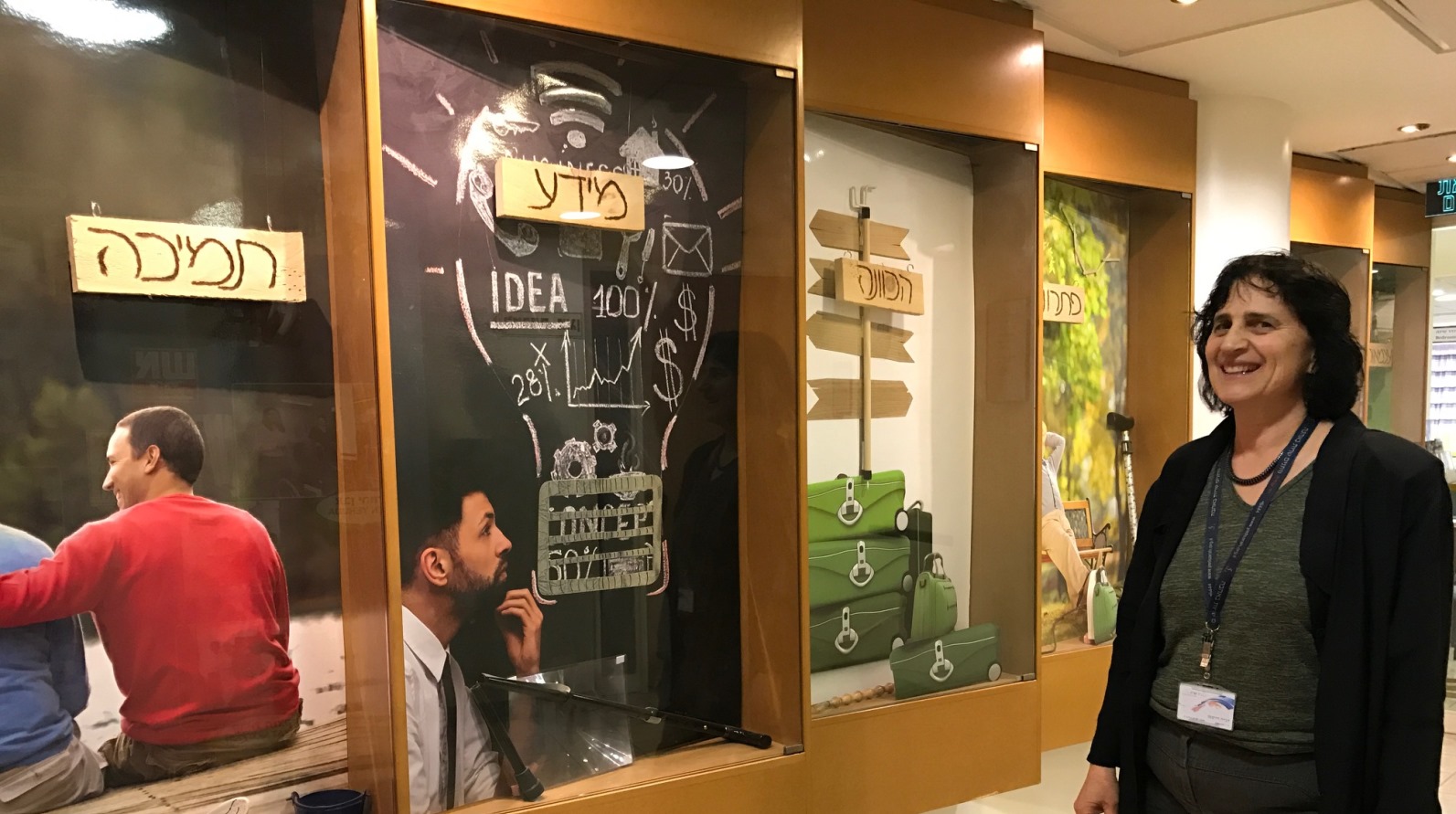
The three-floor Beersheva center offers a dozen services including volunteer handymen who’ve mended items in some 750 apartments of the poor and homebound over the past seven years.
“Yad Sarah is a serious organization and that’s important for people wanting to volunteer in a meaningful way. All you do the entire day is help people,” says director Michael Benson, a retired high-school principal.
“We have 450 volunteers here in Beersheva, but if another 150 volunteers would come along today I’d have plenty for them to do.”
To arrange an individual or group tour, or for more information, click here or here.




